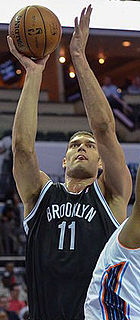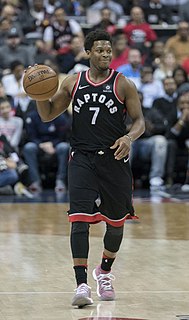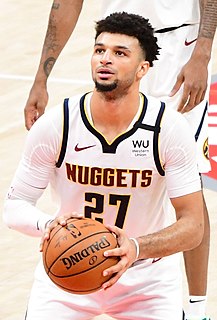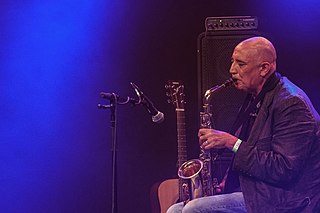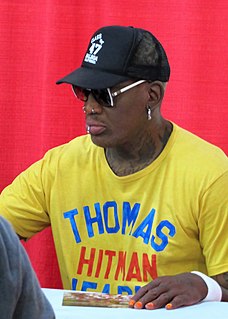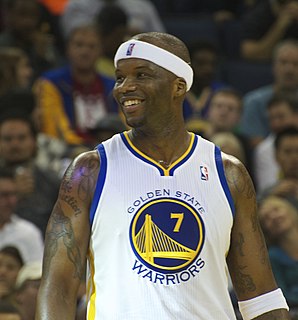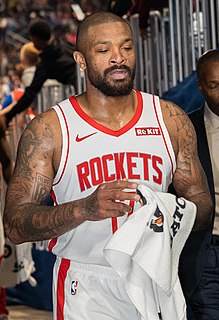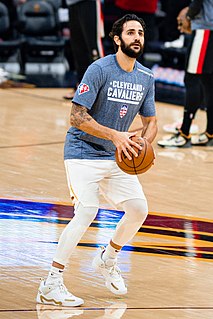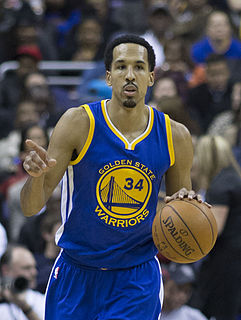A Quote by Evan Fournier
I'm probably going to be more of a vocal leader, which is a challenge for me with English not being my natural language.
Related Quotes
I spent ten years in London; I trained there. But because I started in English, it kind of feels the most natural to me, to act in English, which is a strange thing. My language is Spanish; I grew up in Argentina. I speak to my family in Spanish, but if you were to ask me what language I connect with, it'd be English in some weird way.
When Nigeria actually gave me the call-up I thought 'oh, it's going to be a challenge, I don't go back there a lot, I don't really speak the language.' I wasn't speaking the language as fluently as I am now, so it was always going to be a challenge, but it was a challenge I decided to take and change nationalities.
There cannot be a language more universal and more simple, more free from errors and obscurities...more worthy to express the invariable relations of all natural things [than mathematics]. [It interprets] all phenomena by the same language, as if to attest the unity and simplicity of the plan of the universe, and to make still more evident that unchangeable order which presides over all natural causes
The revival of Hebrew, as a spoken language, is a fascinating story, which I'm afraid I cannot squeeze into a few sentences. But, let me give you a clue. Think about Elizabethan English, where the entire English language behaved pretty much like molten lava, like a volcano in mid-eruption. Modern Hebrew has some things in common with Elizabethan English. It is being reshaped and it's expanding very rapidly in various directions. This is not to say that every one of us Israeli writers is a William Shakespeare, but there is a certain similarity to Elizabethan English.
It is a mass language only in the same sense that its baseball slang is born of baseball players. That is, it is a language which is being molded by writers to do delicate things and yet be within the grasp of superficially educated people. It is not a natural growth, much as its proletarian writers would like to think so. But compared with it at its best, English has reached the Alexandrian stage of formalism and decay.
I have a funny relationship to language. When I came to California when I was three I spoke Urdu fluently and I didn't speak a word of English. Within a few months I lost all my Urdu and spoke only English and then I learned Urdu all over again when I was nine. Urdu is my first language but it's not as good as my English and it's sort of become my third language. English is my best language but was the second language I learned.
James Joyce's English was based on the rhythm of the Irish language. He wrote things that shocked English language speakers but he was thinking in Gaelic. I've sung songs that if they were in English, would have been banned too. The psyche of the Irish language is completely different to the English-speaking world.
The lyrics are not an important thing to me. In fact, it can be a distraction. If I knew the language enough to know it was a horrible love song with stupid lyrics - like most of the popular songs are today in the English language that I hear - then it would be much more of a turnoff then if it would allow me to interpret it from the expressive capabilities of the vocalizing or of the sound itself, which allows me to create my own meaning for it, which elevates it into a higher piece of work for me.
The fact that all our ape cousins - chimpanzees, gorillas and orangutans - can acquire signs - is powerful evidence that our hominid ancestors' first language was gestural and that the vocal version of language was a relatively recent development. My own guess is that vocal language began emerging about 200,000 years ago.
I tell ya, if I hadn't chosen the career of being a performer, I think linguistics would have been a natural area that I'd have loved - to teach it, probably, Language has always fascinated me. There's a genetic inheritance there a good language gene, which I inherited [from my mother and grandfather] and she fostered that in me as he fostered that in her.






